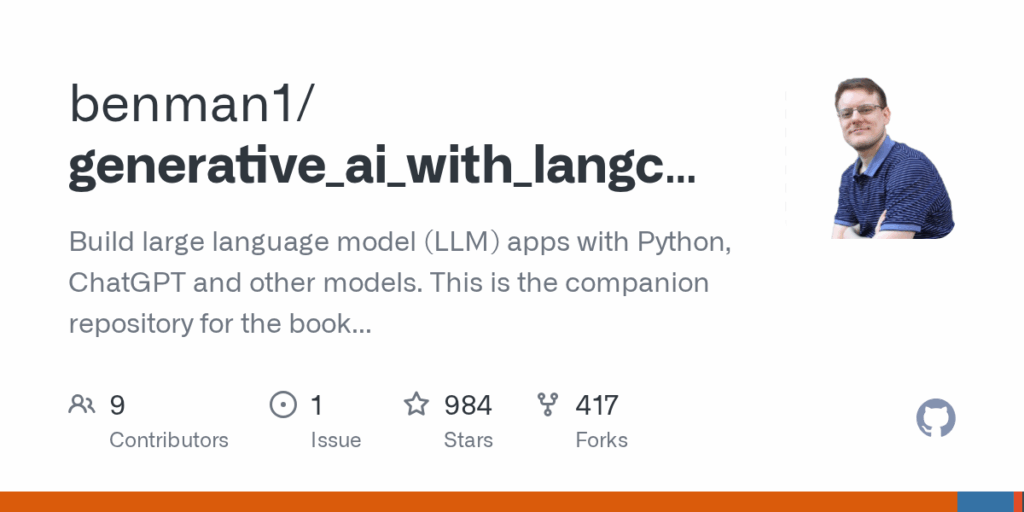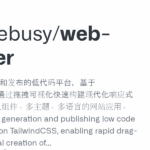generative_ai_with_langchain
Basic Information
This repository is the companion code for the book Generative AI with LangChain, First Edition and provides practical, runnable examples and environment configurations to learn and build large language model applications with Python, ChatGPT and other LLMs. It contains notebook examples and supporting files that mirror the chapters of the book and demonstrate how to create LLM apps such as question-answering systems, chatbots, data-analysis automation and other production-ready patterns using the LangChain framework. The repo documents environment setup options (conda, pip, poetry, Docker), API key handling practices, and maintains two branches: main for the original book and softupdate for a newer LangChain version. The materials focus on prompt engineering, fine-tuning, deployment considerations and safe handling of credentials to help readers reproduce the book’s examples and extend them for their own projects.








